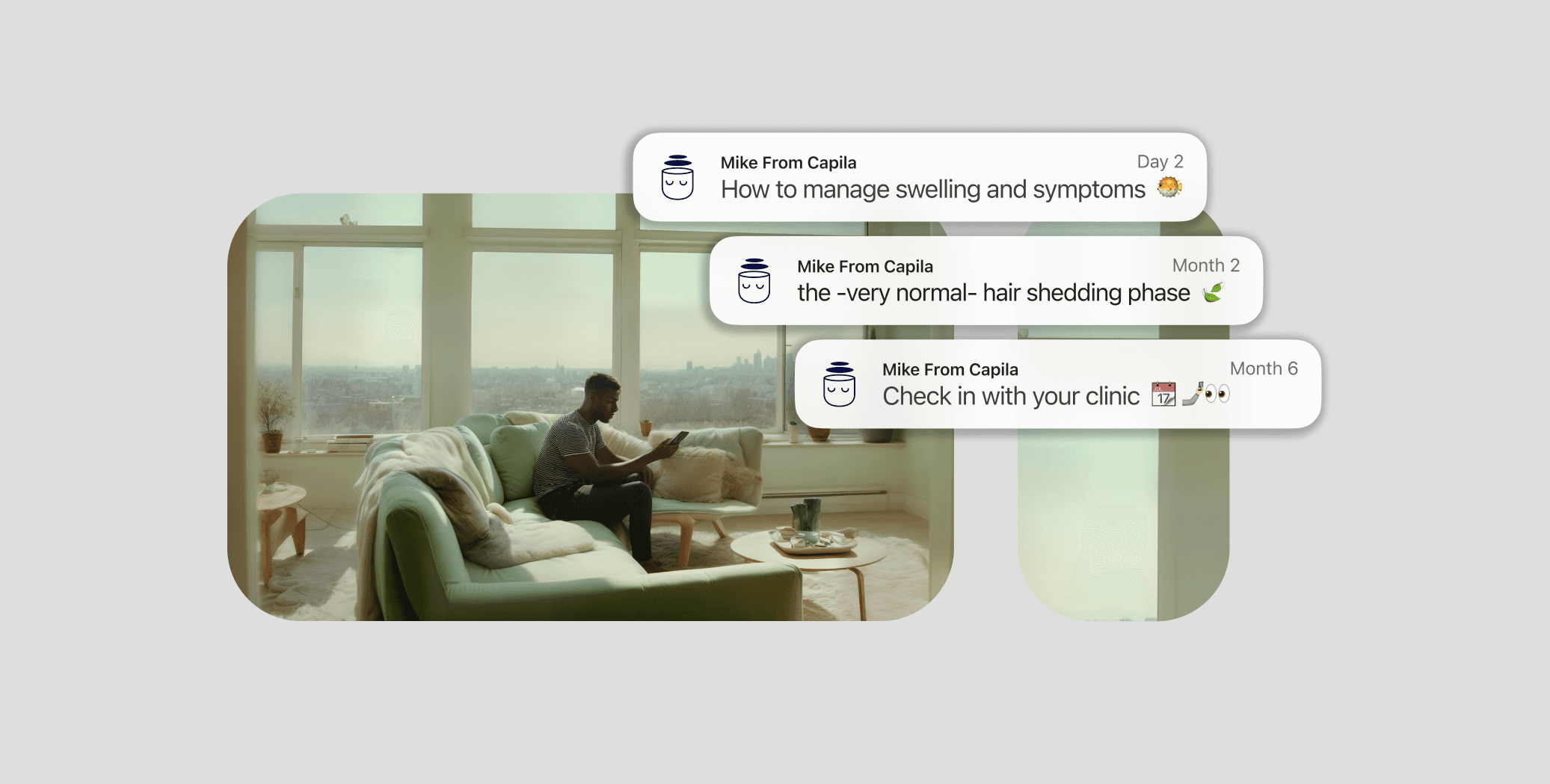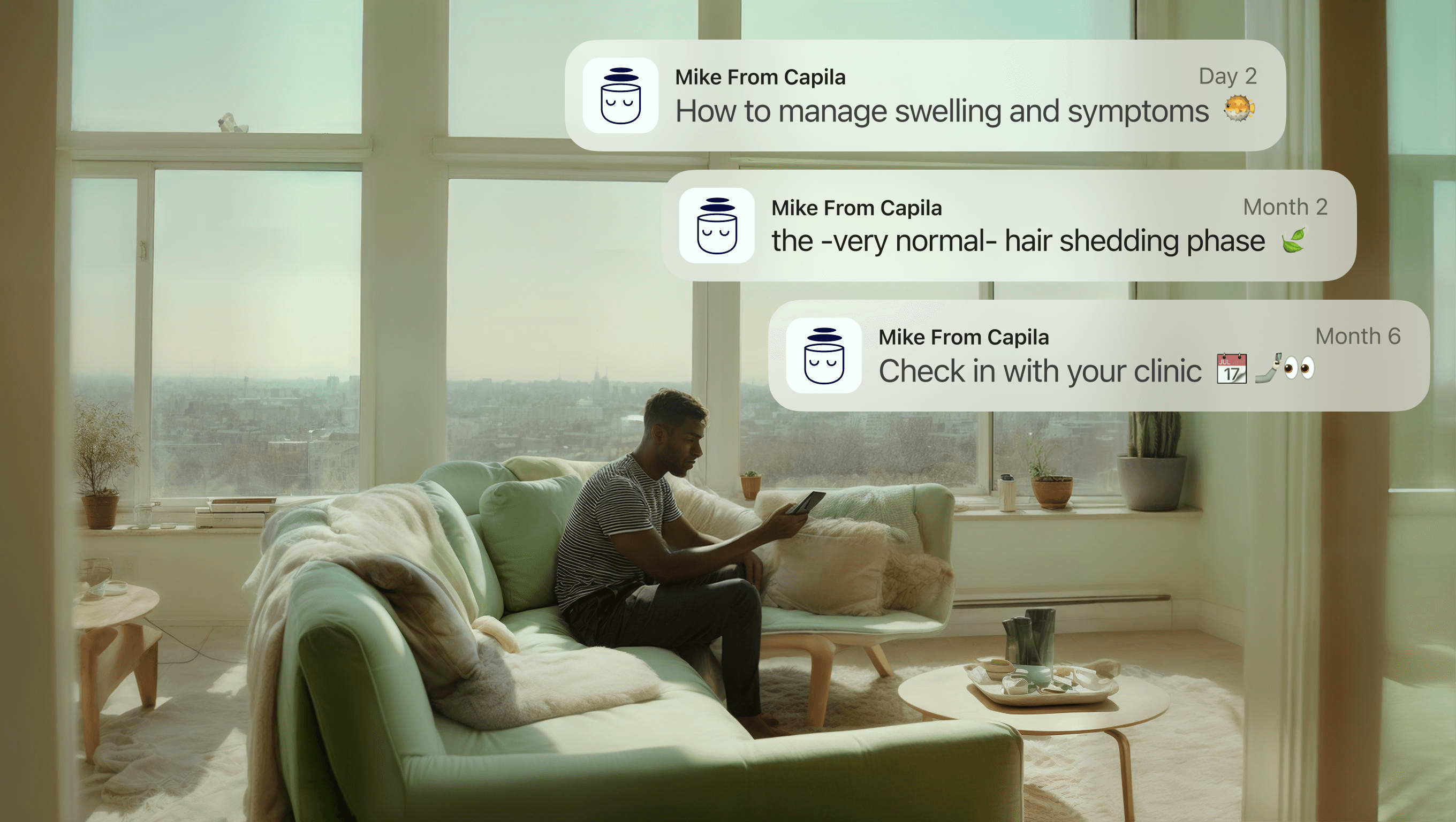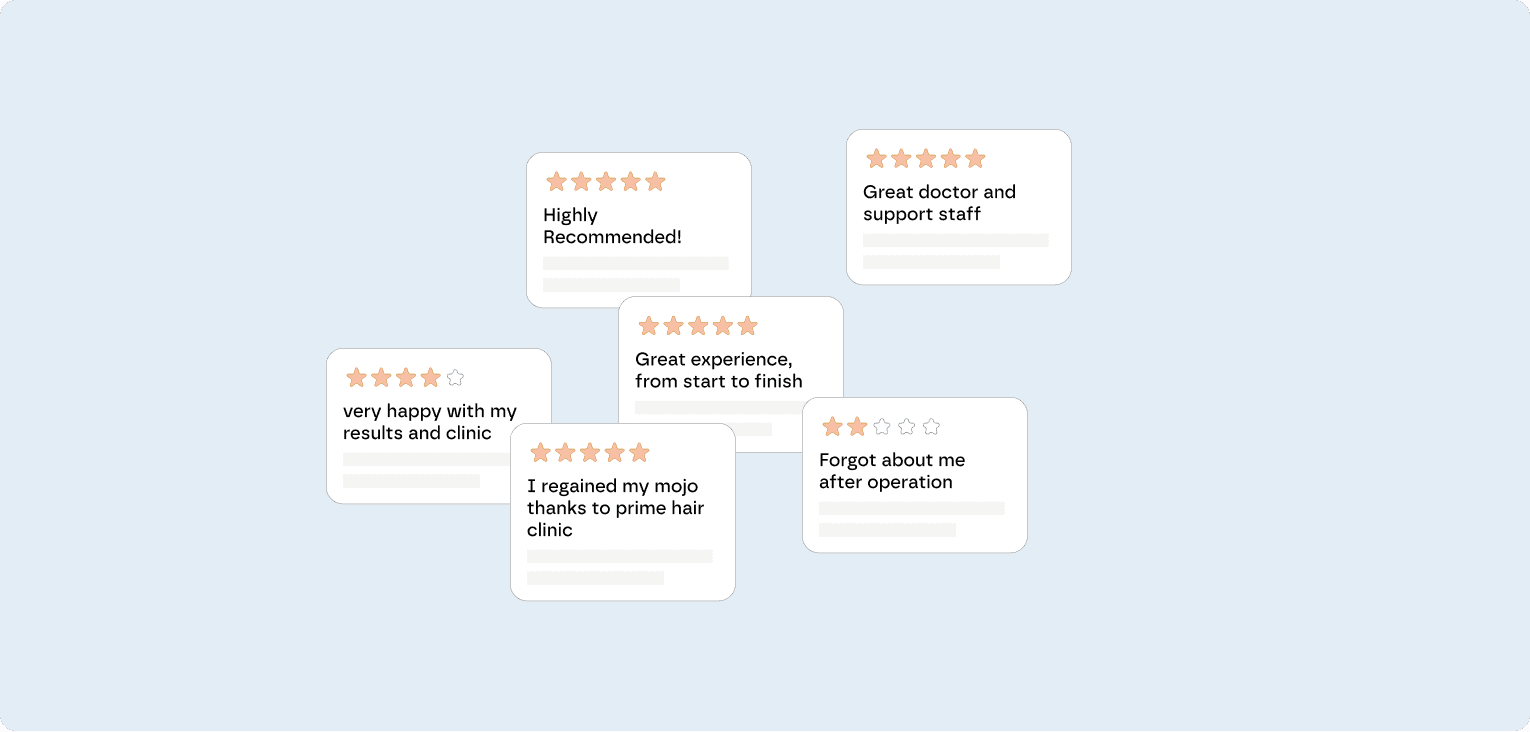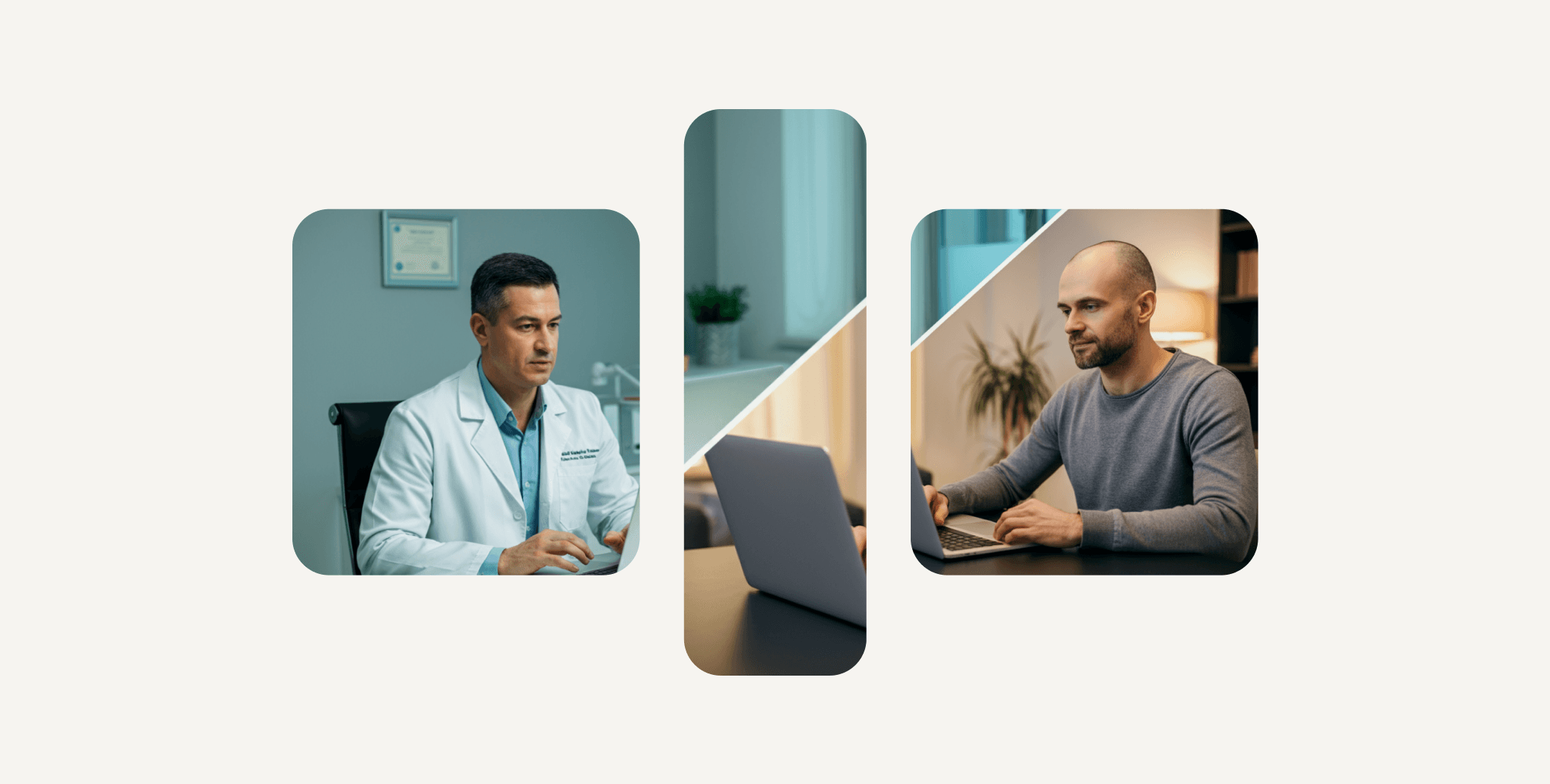The benefits of automated patient notifications for clinics
Oct 28, 2024



The Importance of Aftercare in Healthcare
Aftercare in healthcare plays a crucial role in ensuring patients recover well after treatment. It involves providing support and guidance to patients post-treatment, significantly impacting their healing process. Effective aftercare can help monitor patients' progress, detect any complications early, and ensure they follow necessary instructions for a speedy recovery. It also fosters better communication between patients and healthcare providers, leading to improved patient outcomes and satisfaction. Implementing automated patient notifications for aftercare can streamline this process, ensuring patients receive timely reminders and guidance for their post-treatment care. It helps in enhancing patient engagement and compliance, ultimately contributing to better overall healthcare quality.

Embarrassing Moments: Learning the Importance of Aftercare
I remember I realized how much I misunderstood my aftercare instructions. It was a humbling and somewhat embarrassing moment that taught me a crucial lesson. After my procedure, I was given specific instructions on how to use the cream and shampoo in my aftercare routine. Despite thinking I was following everything correctly, I found scabs forming in a way that concerned me. Nervously, I explained my issues to the nurse, only to discover I had been using the products incorrectly the whole time. This experience opened my eyes to the importance of clear and effective aftercare instructions. It’s a reminder that even small missteps can significantly impact recovery, underscoring the necessity for robust aftercare support systems.
Benefits of Automated Patient Notifications
Automated patient notifications can improve the overall patient experience by keeping them informed about their aftercare instructions, upcoming appointments, and medication reminders in a timely manner. This results in higher patient satisfaction and increased engagement with their healthcare providers. Additionally, these notifications can reduce the rate of missed appointments and improve overall treatment outcomes.
Improving Patient Engagement Through Automation
When it comes to improving patient engagement through automation, implementing automated notifications can make a significant difference. With automated patient notifications, healthcare providers can streamline communication and ensure that patients stay informed about their aftercare effectively. This automation can help reduce missed appointments, enhance patient satisfaction, and ultimately improve the overall quality of care. By utilizing automated notifications, healthcare facilities can create a more efficient and engaging system that keeps patients informed and involved in their aftercare process.
Enhancing Patient Outcomes with Automated Aftercare
Automated patient notifications can improve patient outcomes by ensuring timely communication and follow-up after medical procedures. They help enhance patient satisfaction and compliance with aftercare instructions. Automated notifications can also reduce the likelihood of missed appointments and complications post-treatment. These systems provide a seamless way to keep patients informed about their care, leading to better overall outcomes and a more efficient healthcare process.
Streamlining Communication with Patients
Patients can benefit greatly from streamlined communication systems for aftercare. Automated patient notifications reduce the likelihood of missed appointments or important instructions. These notifications can be personalized to remind patients of their upcoming appointments, follow-up treatments, or medication schedules. This efficient communication ensures patients stay informed and engaged in their aftercare, leading to improved health outcomes and overall patient satisfaction.
Customizing Notifications for Patient Needs
When customizing notifications for patient needs, healthcare providers can tailor messages to suit individual preferences. This personalization enhances patient engagement and satisfaction. By understanding patients' requirements and preferences, providers can ensure that notifications are relevant and helpful, leading to more effective aftercare.
Cost-Effectiveness of Automated Patient Notifications
Automatic patient notifications can be a cost-effective solution for healthcare providers. By using automated notifications, providers can save money on administrative tasks, reduce missed appointments, and improve overall patient satisfaction. Studies have shown that implementing automated patient notifications can lead to significant cost savings in the long run. This is because it streamlines communication processes, lowers staff workload, and decreases the need for manual follow-ups. Overall, the initial investment in setting up automated patient notifications can result in substantial cost savings and improved efficiency for healthcare practices.
Implementing Automated Patient Notifications in Healthcare Facilities
Healthcare facilities are increasingly adopting automated patient notifications to enhance aftercare services. These notifications are efficient in reminding patients of appointments, medication schedules, and follow-up visits. Implementing automated notifications can improve patient engagement, reduce no-show rates, and enhance overall patient satisfaction. Additionally, these notifications can provide patients with timely information, leading to better health outcomes.
Overcoming Challenges in Implementing Automated Aftercare
In implementing automated aftercare, challenges like staff resistance to change and initial setup costs may arise. To overcome staff resistance, provide adequate training and emphasize the benefits of automation. When facing initial costs, consider the long-term efficiency gains and patient satisfaction that automated aftercare can bring. Research shows that once implemented successfully, automated patient notifications can streamline aftercare processes, leading to improved patient outcomes and satisfaction.
Implementing New Systems: A Product Designer's Perspective
As a product designer and service designer, I understand the complexities of incorporating new systems, processes, and tools into a team’s workflow. It's often a nightmare, especially when changes feel forced and unnecessary. However, every once in a while, there are tools or new processes that clearly improve the situation in the long run. These improvements might result in less frustrated patients, better-ordered processes, or simply reduced stress for everyone involved.
At Capila, we aim to incorporate our solutions seamlessly into the existing behaviors of doctors and clinics. We are rigorous about interviewing anyone willing to share their insights—patients, clinics, support agents, or potential hair transplant candidates. Understanding their problems, issues, and pain points helps us create a product that truly addresses their needs. By focusing on intuitive design and thorough research, we strive to make Capila an indispensable tool that enhances aftercare without adding complexity. The goal is to ensure that our system is not only effective but also easy to adopt, making the transition smooth and beneficial for all users involved.
The Importance of Aftercare in Healthcare
Aftercare in healthcare plays a crucial role in ensuring patients recover well after treatment. It involves providing support and guidance to patients post-treatment, significantly impacting their healing process. Effective aftercare can help monitor patients' progress, detect any complications early, and ensure they follow necessary instructions for a speedy recovery. It also fosters better communication between patients and healthcare providers, leading to improved patient outcomes and satisfaction. Implementing automated patient notifications for aftercare can streamline this process, ensuring patients receive timely reminders and guidance for their post-treatment care. It helps in enhancing patient engagement and compliance, ultimately contributing to better overall healthcare quality.

Embarrassing Moments: Learning the Importance of Aftercare
I remember I realized how much I misunderstood my aftercare instructions. It was a humbling and somewhat embarrassing moment that taught me a crucial lesson. After my procedure, I was given specific instructions on how to use the cream and shampoo in my aftercare routine. Despite thinking I was following everything correctly, I found scabs forming in a way that concerned me. Nervously, I explained my issues to the nurse, only to discover I had been using the products incorrectly the whole time. This experience opened my eyes to the importance of clear and effective aftercare instructions. It’s a reminder that even small missteps can significantly impact recovery, underscoring the necessity for robust aftercare support systems.
Benefits of Automated Patient Notifications
Automated patient notifications can improve the overall patient experience by keeping them informed about their aftercare instructions, upcoming appointments, and medication reminders in a timely manner. This results in higher patient satisfaction and increased engagement with their healthcare providers. Additionally, these notifications can reduce the rate of missed appointments and improve overall treatment outcomes.
Improving Patient Engagement Through Automation
When it comes to improving patient engagement through automation, implementing automated notifications can make a significant difference. With automated patient notifications, healthcare providers can streamline communication and ensure that patients stay informed about their aftercare effectively. This automation can help reduce missed appointments, enhance patient satisfaction, and ultimately improve the overall quality of care. By utilizing automated notifications, healthcare facilities can create a more efficient and engaging system that keeps patients informed and involved in their aftercare process.
Enhancing Patient Outcomes with Automated Aftercare
Automated patient notifications can improve patient outcomes by ensuring timely communication and follow-up after medical procedures. They help enhance patient satisfaction and compliance with aftercare instructions. Automated notifications can also reduce the likelihood of missed appointments and complications post-treatment. These systems provide a seamless way to keep patients informed about their care, leading to better overall outcomes and a more efficient healthcare process.
Streamlining Communication with Patients
Patients can benefit greatly from streamlined communication systems for aftercare. Automated patient notifications reduce the likelihood of missed appointments or important instructions. These notifications can be personalized to remind patients of their upcoming appointments, follow-up treatments, or medication schedules. This efficient communication ensures patients stay informed and engaged in their aftercare, leading to improved health outcomes and overall patient satisfaction.
Customizing Notifications for Patient Needs
When customizing notifications for patient needs, healthcare providers can tailor messages to suit individual preferences. This personalization enhances patient engagement and satisfaction. By understanding patients' requirements and preferences, providers can ensure that notifications are relevant and helpful, leading to more effective aftercare.
Cost-Effectiveness of Automated Patient Notifications
Automatic patient notifications can be a cost-effective solution for healthcare providers. By using automated notifications, providers can save money on administrative tasks, reduce missed appointments, and improve overall patient satisfaction. Studies have shown that implementing automated patient notifications can lead to significant cost savings in the long run. This is because it streamlines communication processes, lowers staff workload, and decreases the need for manual follow-ups. Overall, the initial investment in setting up automated patient notifications can result in substantial cost savings and improved efficiency for healthcare practices.
Implementing Automated Patient Notifications in Healthcare Facilities
Healthcare facilities are increasingly adopting automated patient notifications to enhance aftercare services. These notifications are efficient in reminding patients of appointments, medication schedules, and follow-up visits. Implementing automated notifications can improve patient engagement, reduce no-show rates, and enhance overall patient satisfaction. Additionally, these notifications can provide patients with timely information, leading to better health outcomes.
Overcoming Challenges in Implementing Automated Aftercare
In implementing automated aftercare, challenges like staff resistance to change and initial setup costs may arise. To overcome staff resistance, provide adequate training and emphasize the benefits of automation. When facing initial costs, consider the long-term efficiency gains and patient satisfaction that automated aftercare can bring. Research shows that once implemented successfully, automated patient notifications can streamline aftercare processes, leading to improved patient outcomes and satisfaction.
Implementing New Systems: A Product Designer's Perspective
As a product designer and service designer, I understand the complexities of incorporating new systems, processes, and tools into a team’s workflow. It's often a nightmare, especially when changes feel forced and unnecessary. However, every once in a while, there are tools or new processes that clearly improve the situation in the long run. These improvements might result in less frustrated patients, better-ordered processes, or simply reduced stress for everyone involved.
At Capila, we aim to incorporate our solutions seamlessly into the existing behaviors of doctors and clinics. We are rigorous about interviewing anyone willing to share their insights—patients, clinics, support agents, or potential hair transplant candidates. Understanding their problems, issues, and pain points helps us create a product that truly addresses their needs. By focusing on intuitive design and thorough research, we strive to make Capila an indispensable tool that enhances aftercare without adding complexity. The goal is to ensure that our system is not only effective but also easy to adopt, making the transition smooth and beneficial for all users involved.
The Importance of Aftercare in Healthcare
Aftercare in healthcare plays a crucial role in ensuring patients recover well after treatment. It involves providing support and guidance to patients post-treatment, significantly impacting their healing process. Effective aftercare can help monitor patients' progress, detect any complications early, and ensure they follow necessary instructions for a speedy recovery. It also fosters better communication between patients and healthcare providers, leading to improved patient outcomes and satisfaction. Implementing automated patient notifications for aftercare can streamline this process, ensuring patients receive timely reminders and guidance for their post-treatment care. It helps in enhancing patient engagement and compliance, ultimately contributing to better overall healthcare quality.

Embarrassing Moments: Learning the Importance of Aftercare
I remember I realized how much I misunderstood my aftercare instructions. It was a humbling and somewhat embarrassing moment that taught me a crucial lesson. After my procedure, I was given specific instructions on how to use the cream and shampoo in my aftercare routine. Despite thinking I was following everything correctly, I found scabs forming in a way that concerned me. Nervously, I explained my issues to the nurse, only to discover I had been using the products incorrectly the whole time. This experience opened my eyes to the importance of clear and effective aftercare instructions. It’s a reminder that even small missteps can significantly impact recovery, underscoring the necessity for robust aftercare support systems.
Benefits of Automated Patient Notifications
Automated patient notifications can improve the overall patient experience by keeping them informed about their aftercare instructions, upcoming appointments, and medication reminders in a timely manner. This results in higher patient satisfaction and increased engagement with their healthcare providers. Additionally, these notifications can reduce the rate of missed appointments and improve overall treatment outcomes.
Improving Patient Engagement Through Automation
When it comes to improving patient engagement through automation, implementing automated notifications can make a significant difference. With automated patient notifications, healthcare providers can streamline communication and ensure that patients stay informed about their aftercare effectively. This automation can help reduce missed appointments, enhance patient satisfaction, and ultimately improve the overall quality of care. By utilizing automated notifications, healthcare facilities can create a more efficient and engaging system that keeps patients informed and involved in their aftercare process.
Enhancing Patient Outcomes with Automated Aftercare
Automated patient notifications can improve patient outcomes by ensuring timely communication and follow-up after medical procedures. They help enhance patient satisfaction and compliance with aftercare instructions. Automated notifications can also reduce the likelihood of missed appointments and complications post-treatment. These systems provide a seamless way to keep patients informed about their care, leading to better overall outcomes and a more efficient healthcare process.
Streamlining Communication with Patients
Patients can benefit greatly from streamlined communication systems for aftercare. Automated patient notifications reduce the likelihood of missed appointments or important instructions. These notifications can be personalized to remind patients of their upcoming appointments, follow-up treatments, or medication schedules. This efficient communication ensures patients stay informed and engaged in their aftercare, leading to improved health outcomes and overall patient satisfaction.
Customizing Notifications for Patient Needs
When customizing notifications for patient needs, healthcare providers can tailor messages to suit individual preferences. This personalization enhances patient engagement and satisfaction. By understanding patients' requirements and preferences, providers can ensure that notifications are relevant and helpful, leading to more effective aftercare.
Cost-Effectiveness of Automated Patient Notifications
Automatic patient notifications can be a cost-effective solution for healthcare providers. By using automated notifications, providers can save money on administrative tasks, reduce missed appointments, and improve overall patient satisfaction. Studies have shown that implementing automated patient notifications can lead to significant cost savings in the long run. This is because it streamlines communication processes, lowers staff workload, and decreases the need for manual follow-ups. Overall, the initial investment in setting up automated patient notifications can result in substantial cost savings and improved efficiency for healthcare practices.
Implementing Automated Patient Notifications in Healthcare Facilities
Healthcare facilities are increasingly adopting automated patient notifications to enhance aftercare services. These notifications are efficient in reminding patients of appointments, medication schedules, and follow-up visits. Implementing automated notifications can improve patient engagement, reduce no-show rates, and enhance overall patient satisfaction. Additionally, these notifications can provide patients with timely information, leading to better health outcomes.
Overcoming Challenges in Implementing Automated Aftercare
In implementing automated aftercare, challenges like staff resistance to change and initial setup costs may arise. To overcome staff resistance, provide adequate training and emphasize the benefits of automation. When facing initial costs, consider the long-term efficiency gains and patient satisfaction that automated aftercare can bring. Research shows that once implemented successfully, automated patient notifications can streamline aftercare processes, leading to improved patient outcomes and satisfaction.
Implementing New Systems: A Product Designer's Perspective
As a product designer and service designer, I understand the complexities of incorporating new systems, processes, and tools into a team’s workflow. It's often a nightmare, especially when changes feel forced and unnecessary. However, every once in a while, there are tools or new processes that clearly improve the situation in the long run. These improvements might result in less frustrated patients, better-ordered processes, or simply reduced stress for everyone involved.
At Capila, we aim to incorporate our solutions seamlessly into the existing behaviors of doctors and clinics. We are rigorous about interviewing anyone willing to share their insights—patients, clinics, support agents, or potential hair transplant candidates. Understanding their problems, issues, and pain points helps us create a product that truly addresses their needs. By focusing on intuitive design and thorough research, we strive to make Capila an indispensable tool that enhances aftercare without adding complexity. The goal is to ensure that our system is not only effective but also easy to adopt, making the transition smooth and beneficial for all users involved.
Try the Early Version of Capila for Free!
Download the Capila app for personalized hair transplant recovery support, or get early access to our clinic web app designed to save time and improve patient care.

